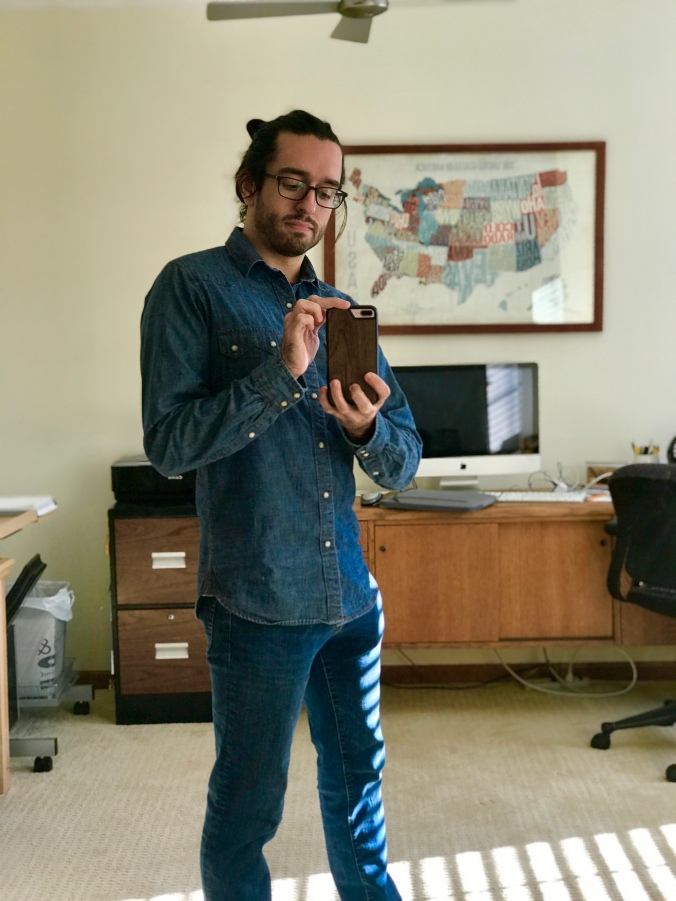Brandon Smith is an investigative journalist in the accountability tradition. He has used documents to break stories on police brutality, surveillance of activists, public health and pollution, monopoly, and military spending. His work has appeared in The Guardian, Al Jazeera, The Daily Beast, In These Times, and the Chicago Reader. Here’s a resume if you’re looking for that. He is based in Washington, DC.
Brandon only discusses stories or possible stories via the app Signal, at which you can reach him at 740-505-0038. For anything else, reach out via email, at hey -at- brandonsmith -dot- com. For those who wish to talk in secret, please read the page on blowing the whistle.
ENCRYPTION AND WHISTLEBLOWER WORK Smith was one of the first reporters to use encryption tools to communicate with whistleblowers. In this 2012 letter to Glenn Greenwald, Smith offers Greenwald assistance in setting up encryption. Edward Snowden also asked Greenwald that month to adopt encryption. Snowden’s stories broke the following spring. Later Smith wrote about working with whistleblowers and encryption tools generally. Smith has taught source security to undergraduate and graduate students at Northwestern University’s Medill School of Journalism.
FOIA STRATEGY Smith has often taught attorneys about the Freedom of Information Act for legal education credit in New York, Illinois, and Germany. He specializes in instructing FOIA responders on their burden under current caselaw before they make a poor finding and are forced to defend it. Smith’s wide-ranging FOIA requests to the Department of State and Department of Defense are poised to shed first light on massive programs.
REPORTING FOR SPECIALTY PUBLICATIONS While working at The Capitol Forum, Smith wrote for a niche audience of attorneys, regulators, and investors. His work moved markets dominated by giant public companies. The Intercept covered this newsroom’s work, which resulted in Congress’ calls to investigate and the opening of a Department of Defense IG investigation.
OTHERS’ COVERAGE OF SMITH’S WORK
New York Times and New York Times Magazine
ProPublica Podcast
The Intercept
Columbia Journalism Review
SELECT VENUES AT WHICH SMITH HAS SPOKEN
Investigative Reporters and Editors’ annual conference
Whitney Museum of American Art
Northwestern University Medill School of Journalism
University of Maryland
Chicago Headline Club FOIA Fest
ProPublica’s newsroom
Society of Professional Journalists regional workshops
Minnesota Coalition on Government Information
Ithaca College
Loyola University
Art Institute of Chicago
Bradley University
Smith is perhaps best known for investigating the case of Laquan McDonald. Laquan’s killer, a Chicago police officer, was charged with murder 405 days after the shooting, notably after Smith won his freedom of information lawsuit to force the city to release the video and began writing columns about the case. The officer was later convicted of second-degree murder.
Chicago’s top police officer was fired; top detective; police review authority head. The state’s attorney lost her re-election bid after a massive campaign by activists. The U.S. Department of Justice shortly took up what it called its largest investigation of a city in American history. And on the eve of the officer’s murder trial, Mayor Rahm Emanuel announced he would not seek a third term.
THE AUTHOR.

“Where there is a free press the governors must live in constant awe of the opinions of the governed.” – Lord MacAuley
“It is difficult to get a man to understand something when his salary depends upon his not understanding it.” – Upton Sinclair
“If you want to do something evil, put it inside something boring.” – John Oliver